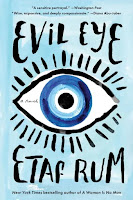I am what might be called a cultural Christian. I went to sunrise service at our lake this past Sunday, because it only lasts a half an hour, I could throw a coat on over blue jeans and a long sleeve t-shirt, and when I got home around 7:30 AM I could feel that I had been to church on Easter and now had the rest of the day for other things. I took pictures to prove to family members I'd gone.
I cling to some of the trappings of my Christian life.
For instance, I like using the beginnings of some of the Christian church seasons as temporal landmarks, a point at which I can start a new project that I complete at the end of the season. I've been successful with my Advent/Holiday Hell projects the last few years. I just finished a Lenten reading project that I'm not as happy with.
Traditionally Catholics and maybe other Christians give up doing something during Lent. That's little Catholic Gail's recollection of Lent--fish sticks or macaroni and cheese for dinner on Fridays and giving something up. Sometime in the more recent past I read a suggestion that instead of giving something up for Lent, we take something on we don't normally do.
I want to point out that I am aware that that writer probably meant taking on something spiritual. I took on some different kinds of reading. While I don't actually feel bad about that, I recognize that I should.
In 2016 I did a Lenten reading project involving nonfiction. And you want to hear something bizarre? I see that that is when I finished reading How to Live: A Life of Montaigne by Sara Bakewell, and a month and a half ago I submitted a personal essay involving Montaigne to an anthology. And just last week I submitted a humor piece involving Montaigne to a humor site. Wow. Is that almost spiritual?
Then in 2023 I read The Essential Ruth Stone during Lent and liked the experience enough that I continued reading the book after Easter until I'd finished it.
2025 Lenten Reading Project
This year I came up with the idea to read a short story a day during Lent...any short story...because I'm focusing on short form writing now and even doing some self-study of short story writing. Expanding my knowledge of short stories seemed like such a good idea.
Except I don't feel I expanded my knowledge much. In fact, I didn't get much out of this project at all. I did read a New Yorker short story I liked a lot and think I can use for next month's Heritage Month Project. But many times, I had to rush to get the reading done for the day and just chose any random piece of flash fiction I could find. Then I wanted to keep a list of everything and that was time consuming.
No, not one of my more successful projects.
Oh, wait. You know what I should have done? I should have done a sentence or two of reader response for each story. Well, live and learn.
In fact, I think that's what was wrong with this project. It wasn't focused enough, the way my reading of Ruth Stone's book was. If I had just read Jackson...yes, that could have worked for me.
My Short Story Reading List
Ash
Wednesday, March 5:
Good Stretch, Rebecca Meacham https://wigleaf.com/202004stretch.htm
March
6: Maladies, Kevin Yeoman https://www.failbetter.com/content/maladies
March
7: Everyday
Miracles, Benjamin
Woodard https://mrbullbull.com/newbull/fiction/everyday-miracles/
March 9: Traps, Kara McKeever https://cutleafjournal.com/content/traps
March
10: This Used
to be a Story About a Racoon But Now It’s An Obituary, Ani King https://gooseberry-pie.com/this-used-to-be/
March
11: Dried Up,
Kim Magowan https://cutleafjournal.com/content/dried-up
March
11 (Catching up
for March 8): “Family Portrait” 1860,
Rebecca Meacham https://atticusreview.org/family-portrait-1860/
March
12: Footprint, Jennifer Handy https://flywayjournal.org/fiction/jennifer-handy-footprint/
March
13: The Last
Murmuration of Gwyneth, Winnie
Bright https://writingdisorder.com/winnie-bright-fiction/
March
14: The
Procedure, P.A. Cornell
https://www.abyssapexzine.com/2024/01/the-procedure/
March
15: Interesting
About E and A, Helen Oyeyemi https://www.newstatesman.com/culture/2016/03/interesting-about-e-and-new-short-story-helen-oyeyemi
March
16: The Frenzy,
Joyce Carol Oates https://www.newyorker.com/magazine/2025/03/24/the-frenzy-fiction-joyce-carol-oates
March
17: The Golden
Hours, Lynda M. Bayley https://www.frazzledlit.com/p/the-golden-hours
March
18: The
Paradise, Shirley Jackson
March
19: How to Bake
Without Eggs, Edith-Nicole Cameron https://literarymama.com/articles/departments/2025/03/how-to-bake-without-eggs
March
20: Books and
Roses, Helen Oyeyeme https://granta.com/books-and-roses/
March
21: Death and
His Family, Francine Witte https://fictivedream.com/2025/03/02/death-and-his-family/
March
22: Firmanet,
Engine Roar, Jewels, https://redrockreview.org/issue-51-2-2/fragment-engine-roar-jewels/
March
23: One Minute
Thirty-five Seconds,
Caleb Ludwick https://fracturedlit.com/one-minute-thirty-five-seconds/
March 24: How Hauntings Happen,
Melissa Ostrom https://www.stonecoastreview.org/how-hauntings-happen/
March
25: Outer Space, Tom Saunders Outer
Space - SmokeLong Quarterly
March
26: Sanctuary,
JJ Amaworo Wilson
https://www.stonecoastreview.org/sanctuary/
Marcy
27: Gulls of
the Argarve, Matt Barrett https://flash-frog.com/2025/03/17/gulls-of-the-algarve-by-matt-barrett/
March
28: Harrison
Road, Kate Gehan https://bluestemmagazine.com/sps24/kate-gehan
Mary 29: Snow Queen Seratonin, Mary
Buchanan https://www.tinymolecules.com/issues/twentytwo#mary-buchanan
March
30: Angels,
Mary Miller, https://www.vestalreview.net/angel
March
31: Marked, Desiree Cooper https://fracturedlit.com/marked/
April
1: Sorry I
Didn’t Call You Back, Arah Ko https://splitlipthemag.com/poetry/0524/arah-ko
April
2: Dream
Interpretations for Beginners, Miriam Gershow Issue 19 |Miriam Gershow – LEON Literary Review
April
3: Two Micros,
Jeffrey Herman https://okaydonkeymag.com/2024/11/29/2-micros-by-jeffrey-hermann/
April 4: When He Says That You’re A
Goddess, Amy Strong
https://frictionlit.org/when-he-says-that-youre-a-goddess/
April
5: Materials
Needed Kyle Weik https://flash-frog.com/2025/03/31/materials-needed-by-kyle-weik/
April
6: The Books of
Losing You
https://www.newyorker.com/books/flash-fiction/the-books-of-losing-you
April 7: Micro Monday (3) https://fictivedream.com/2025/04/07/micro-monday-1/
April 9: From, To, David Mezgozis https://www.newyorker.com/magazine/2025/04/14/from-to-fiction-david-bezmozgis
April 10: Paranoia, Shirley Jackson
April 11: Still Life with Teapot and Students, Shirley Jackson
April 12: The Arabian Nights
April 13: Mrs. Spencer and the Oberons, Shirley Jackson
April
14: Easy Street, Steve Trumpeter https://www.bartlebysnopes.com/stories/easy-street.html
April
15: How We Met,
Bruce Holland Rogers https://www.flashfictiononline.com/article/how-we-met/
April
16: It Isn’t
the Money I Mind, Shirley Jackson
April
17: Company for
Dinner, Shirley Jackson
April
18: The Greatest
Guy in the World, Shirley Jackson
















